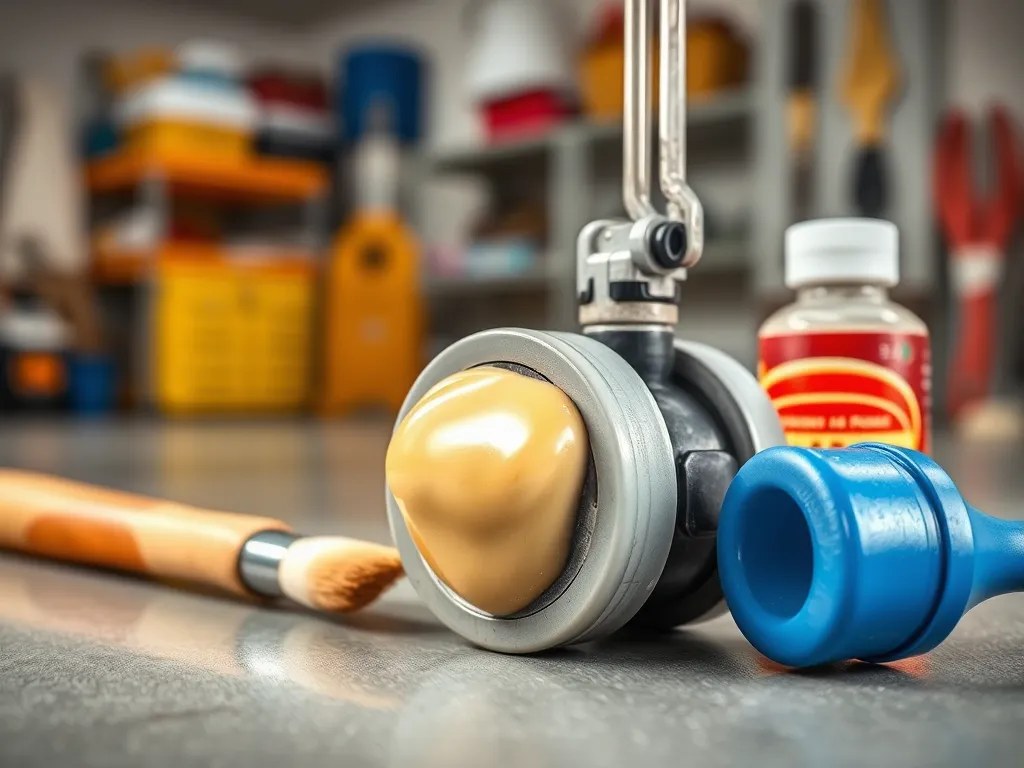Essential Step-by-Step Guide to Lubricating Garage Door Rollers

Comprehensive Guide on Garage Door Maintenance
Garage Door Maintenance is an essential aspect of home upkeep that is often overlooked. Regular maintenance can extend the lifespan of your garage door and ensure that it operates smoothly. Without proper care, your garage door can become a source of frustration, leading to costly repairs or even replacement. In this guide, we will explore the best practices for garage door maintenance, emphasizing the importance of lubrication and providing a step-by-step process for keeping your garage door in top condition.
One critical point of focus in Garage Door Maintenance is lubrication. Proper lubrication of the rollers, hinges, and tracks is vital for smooth operation. When the components are well-lubricated, the garage door operates quietly and efficiently. Neglecting lubrication can result in glitches that lead to more significant issues over time. Therefore, understanding how and when to lubricate your garage door is a key element of your maintenance routine.
In addition to lubrication, regular inspection of garage door components plays a crucial role in maintaining functionality. Checking for wear and tear on the rollers and tracks, testing the door's response to remote signals, and ensuring that the safety features are operational are vital steps in Garage Door Maintenance. Proactive inspections can help catch minor issues before they escalate into more expensive repairs.
Regular maintenance promotes smooth movement of garage doors, enhancing their functionality and reliability over time.
The benefits of Garage Door Maintenance also extend to safety. A well-maintained garage door minimizes the risk of accidents caused by malfunctioning equipment. It is paramount to ensure that the door opens and closes smoothly and that all safety features (like auto-reverse mechanisms) are functioning correctly. With safety in mind, you can avoid potential hazards that could put family members at risk.
Investing in effective noise reduction techniques ensures a quieter environment for both you and your neighbors.
Lastly, consistency is key when it comes to Garage Door Maintenance. Establishing a routine schedule for inspections and lubrication will help keep your garage door in optimal working order. Set reminders for seasonal checks and stay informed about the latest maintenance tips to protect your investment. This proactive approach will ensure that your garage door remains a reliable asset for years to come.
Importance of Lubrication for Garage Doors
Lubrication is often regarded as the lifeblood of Garage Door Maintenance. Lubricating garage door rollers helps minimize friction, which can lead to smoother operation and reduced wear on components. When rollers slide smoothly along the tracks, the overall noise level is also decreased, providing a quieter environment in your garage and home.
Failing to maintain proper lubrication can result in various complications. Dry or corroded components can lead to grinding noises, increased resistance during operation, and eventual mechanical failure. This neglect not only affects performance but can also create safety hazards if the garage door becomes stuck or fails to respond to commands.
Following the essential roller lubrication steps can extend the lifespan of your garage door significantly.
Regular lubrication positively affects the longevity of a garage door. By ensuring that all moving parts are well-lubricated, homeowners can mitigate wear and tear. This care can lead to a longer lifespan for the door, reducing the need for frequent repairs or replacements, and providing peace of mind to homeowners.
Tools Needed for Lubricating Garage Door Rollers
Before starting the lubrication process, certain essential tools are required. Homeowners should have a wrench set, a screwdriver, a cleaning cloth, and a suitable lubricant for garage doors. These tools will help facilitate a smooth and effective lubrication process, ensuring that each component is appropriately serviced.
When it comes to lubricants, it's crucial to choose the right type for your garage door. Silicone-based lubricants are generally preferred for garage door rollers because they reduce friction without attracting dust and debris. Additionally, lithium grease is a common alternative for mechanical components, providing long-lasting protection.
Safety is paramount during maintenance tasks, including lubrication. Wearing safety goggles is highly recommended to protect your eyes during the process. Gloves can also help prevent direct contact with lubricants, ensuring a cleaner maintenance experience. Being safety-conscious will make the maintenance process more efficient and risk-free.
Step-by-Step Lubrication Process
To begin the lubrication procedure, it is essential to prepare the garage door. First, disconnect the automatic opener to ensure safety while working on the door. Open the garage door to access all necessary components, and visually inspect the rollers and hinges for dust and debris that may have accumulated over time.
Applying lubricant to the rollers should be done carefully. If utilizing a spray lubricant, hold the can upright and apply an even coat directly to the rollers and other moving parts. For grease, use your fingers or a small brush to spread an even layer. Ensure not to over-lubricate, as excess lubricant can attract dirt and debris.
Before applying lubricant, it is vital to clean the components thoroughly. Use a cleaning cloth or degreaser to wipe down the rollers, tracks, and hinges. Removing accumulated dirt and dust will enhance the lubrication's effectiveness and ensure smooth operation in the long run.
Common Problems and Solutions
One common issue homeowners face involves worn or damaged rollers. Signs of wear include cracking, chips, or excessive rust. If you identify any significant damage to the rollers, they should be replaced immediately to avoid further complications and ensure the door operates correctly.
Another prevalent challenge is noisy garage doors. Excessive noise can arise from lack of lubrication, worn-out components, or misalignment. To troubleshoot this, inspect the rollers and make sure they are lubricated. If noise persists after maintenance, further investigation may be required to address alignment issues.
Sticky rollers can also impede proper function. If the rollers are sticking or not moving smoothly, ensure they are clean and lubricated adequately. If cleaning and lubrication do not resolve the sticking issue, it may be indicative of more extensive damage that would require professional assessment and potentially roller replacement.
Frequency of Lubrication
Homeowners should regularly lubricate garage door rollers every six months to ensure optimal performance. During routine maintenance checks, assess if additional lubrication is needed based on usage and environmental factors.
Seasonal maintenance can aid in scheduling lubrication. Consider lubricating the garage door at the start of spring and fall, as these changes in seasons can lead to shifting temperatures and humidity that impact performance. Keeping a seasonal schedule helps maintain consistency in your garage door maintenance routine.
Several factors can influence how often you need to lubricate your garage door. High usage doors, exposure to moisture, and extreme temperatures may require more frequent lubrication. Tailoring your maintenance schedule according to these factors will keep your garage door in peak condition.
